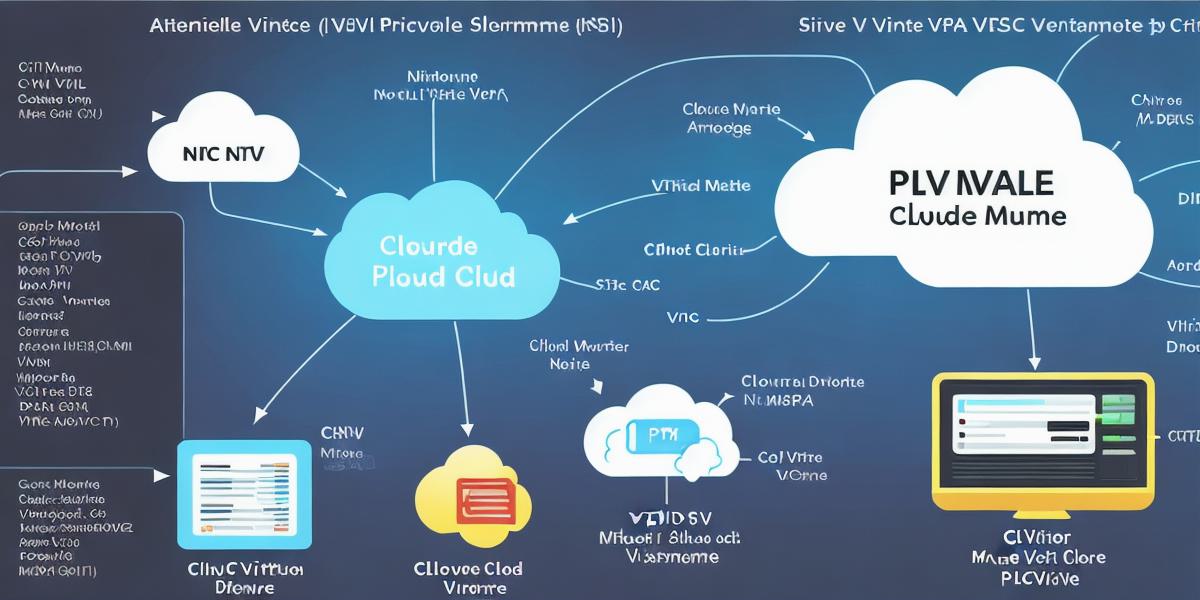VPS Cloud: An In-Depth Overview for Programmers

Are you a programmer looking to take your website or application to the next level? Look no further than VPS cloud computing. In this article, we’ll explore everything you need to know about VPS cloud, including its benefits, how it works, and real-life examples of successful businesses using it.
VPS Cloud Overview
VPS (Virtual Private Server) cloud computing is a type of hosting that allows you to rent out your own virtual server on the cloud. This means you have complete control over your server’s resources and can configure it to suit your specific needs. With VPS cloud, you can easily scale up or down depending on your traffic and workload, without having to worry about the limitations of shared hosting.
Benefits of VPS Cloud
There are several benefits to using VPS cloud for your website or application:
- Control: With VPS cloud, you have complete control over your server’s resources, including CPU, RAM, storage, and bandwidth. This means you can configure your server to suit your specific needs, without having to worry about the limitations of shared hosting.
- Scalability: VPS cloud allows you to easily scale up or down depending on your traffic and workload. This means you can add more resources to your server when needed, or reduce them when you’re not busy.
- Security: With VPS cloud, your website or application is stored in a secure virtual environment. This means you don’t have to worry about attacks on other websites or applications that are also hosted on the same server.
- Cost-Effective: VPS cloud can be more cost-effective than shared hosting, especially if you have a high traffic website or application. With VPS cloud, you only pay for the resources you use, whereas with shared hosting, you’re paying for a fixed amount of resources regardless of your actual usage.
Real-Life Examples of Successful Businesses Using VPS Cloud
Many successful businesses use VPS cloud to power their websites and applications. Here are just a few examples:
- Dropbox: The file hosting service uses VPS cloud to power its infrastructure, which allows it to handle millions of users and files.
- Airbnb: The vacation rental platform uses VPS cloud to power its website and application, which allows it to scale up or down depending on demand.
- LinkedIn: The professional networking site uses VPS cloud to power its infrastructure, which allows it to handle billions of users and job listings.
How VPS Cloud Works
VPS cloud works by allowing you to rent out your own virtual server on the cloud. When you sign up for VPS cloud, you’re given access to a virtual machine (VM) that is hosted on a physical server in a data center. The VM is configured with its own operating system, CPU, RAM, storage, and bandwidth resources, which you can then use to run your website or application.
VPS cloud providers offer different levels of service, with each level offering more resources than the last. When you sign up for VPS cloud, you’ll typically have to choose a plan based on your expected workload and resource needs.
Conclusion
If you’re looking to take your website or application to the next level, consider using VPS cloud computing. With its benefits, including control, scalability, security, and cost-effectiveness, VPS cloud is a great option for programmers. Whether you’re just starting out or running a successful business, VPS cloud can help you power your website or application with the resources you need to succeed.
FAQs
- What is VPS cloud computing?
VPS (Virtual Private Server) cloud computing is a type of hosting that allows you to rent out your own virtual server on the cloud. This means you have complete control over your server’s resources and can configure it to suit your specific needs. - Is VPS cloud more secure than shared hosting?








